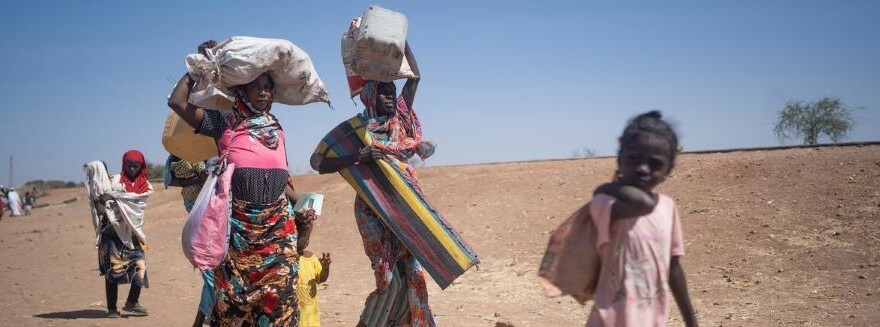Residents of Adila locality in Sudan’s East Darfur State have expressed concerns over the escalating food deficit in the region. They said the compounding situation could lead to famine during the summer season.
Abdurrahman Abdelqader, the Executive Director of Adila locality, told Radio Tamazuj on Saturday that “the locality is facing a significant food gap due to the scarcity of rainfall and the spread of pests such as locusts, which have devastated farms, resulting in a shortage of food grains.”
He attributed the gap not only to the scarcity of rainfall in the previous rainy season and the spread of locusts that destroyed the millet crop, which is the main food for the region’s residents but also to the ongoing war that forced many of Adila’s residents to leave their homes in Sudanese cities and return to Adila due to the security stability.
He also acknowledged a severe shortage of medicine and fuel for water stations and food supplies.
Engineer Yassir Hadi Adam, a resident of Adila, stated that the area is experiencing a food gap and predicted that it could turn into a famine.
He denied the arrival of any humanitarian organizations to the locality throughout the war period, calling on them to intervene urgently to bridge the food and medicine gap.
He added, “Due to the low agricultural production, the price of millet has risen to 120,000 Sudanese pounds, while the price of the same quantity, at the same time last year, did not exceed 40,000 Sudanese pounds. In addition, the locality received about 2,000 families of its scattered sons from various parts of Sudan before the war, which impacted people’s livelihoods.”
Another resident, Yusuf Mahmoud Hassan, said: “I see the possibility of famine occurring in Adila locality this year as highly likely, especially given the reduction in the areas that farmers were able to cultivate in the agricultural season, including millet, groundnuts, and sesame.”
He attributed the famine to the scarcity of rainfall and farmers’ inability to cultivate large areas this year due to a lack of bank financing. He added, “In the past, farmers relied on bank financing, but due to the ongoing war, banks in the Adila locality have been closed since the first gunshot.”
Sudan was plunged into chaos last April when clashes erupted between Sudan’s army and the paramilitary Rapid Support Forces (RSF) amid tensions over a plan for transition to civilian rule.
The war has left 25 million people – more than half of Sudan’s population – in need.
Sudan is at risk of famine this year, the UN has warned.




